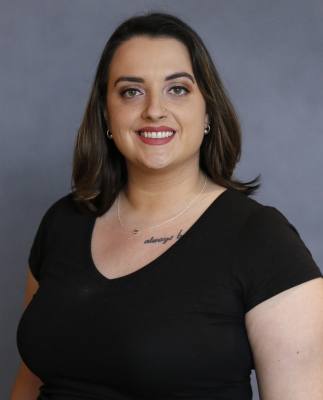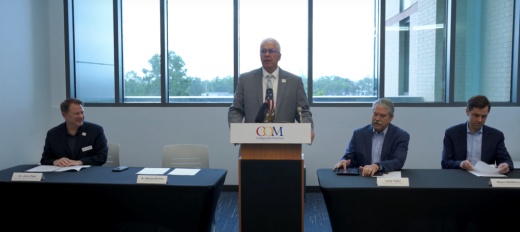College of the Mainland will begin a significant expansion of its offerings this fall as the college’s first-ever bachelor’s students begin their studies.
The signing of House Bill 3348 into law during the 87th Texas legislative session allows for community colleges such as COM to offer up to five bachelor’s degree programs in addition to their two-year offerings. The first baccalaureate degree COM is offering will be in nursing; the first 20 students in the cohort will begin this fall.
The second cohort of students will be admitted, tentatively, in the fall 2022 semester, per the online course catalog. Admission will be offered in the fall, spring and summer semesters during the second year that the Bachelor's of Science in nursing program is offered.
“College of the Mainland serves the citizens of the mainland in Galveston County, and we are a responsive college,” COM Vice President for Instruction Jerry Fliger said during a July press conference. “All of our programs directly serve the workforce needs of our community.”
COM leadership and local lawmakers spoke about the program expansions July 1 inside of the new science, technology, engineering, arts and math building, which was unveiled April 30. State Sen. Larry Taylor, R-Friendswood, called HB 3348 “a Godsend for students today,” adding community colleges will lead the state into post-pandemic economic recovery at an efficient cost.
“I’m very excited about the future of this building,” he said of the STEAM building July 1. “What a great thing that the citizens and the people involved in the College of the Mainland did ... [so we can] train up our students to become what they can be and what we need them to be in the future.”
Bills such as HB 3348 help higher education institutions provide more robust offerings to their communities and work toward equality of opportunity in post-secondary education, state Rep. Mayes Middleton, R-Wallisville, said at the press conference.
“It’s these kinds of bills that I think build a better future for Texas,” said Middleton, who was one of the bill’s 10 sponsors.
COM offers the third-lowest tuition in the state for community colleges, President Warren Nichols said at the press conference. Key decision-makers review labor market data each year to ensure program offerings empower graduates to enter the workforce with skills that will be in demand in the next five to 10 years, college leaders said July 1—as well as ensuring the available jobs pay a livable wage.
Community colleges are crucial in providing local residents with a path to career mobility, lawmakers and college leaders said July 1. Earning a four-year degree at a private university outside the Greater Houston area can result in the accumulation of significant student debt, making higher education unattainable for those who cannot shoulder that debt and attend college in another area.
Successful community colleges and workforce development programs help ensure the next generation of learners remains in the Bay Area, lawmakers and COM leaders said. Taylor, who is the state Senate Committee on Education chair, said lawmakers’ attitudes around education changed amid the COVID-19 pandemic.
Decision makers in education are now tasked with executing measures that will help both the students and the state, Taylor said. The events of the 2020-21 school year brought about an increase in desire to innovate by “a lot of parties,” which helped lawmakers pass productive education legislation, Middleton added.
COM cannot offer an additional bachelor’s degree program until at least six months after the first one begins, Fliger said July 1. The college is working with its business and industry partners to develop plans for the other four bachelor’s programs.
“We welcome and encourage the conversations with our sister universities to let us provide the opportunity for our students, regardless of what their career aspirations are, to come here to continue that education,” Nichols said.





